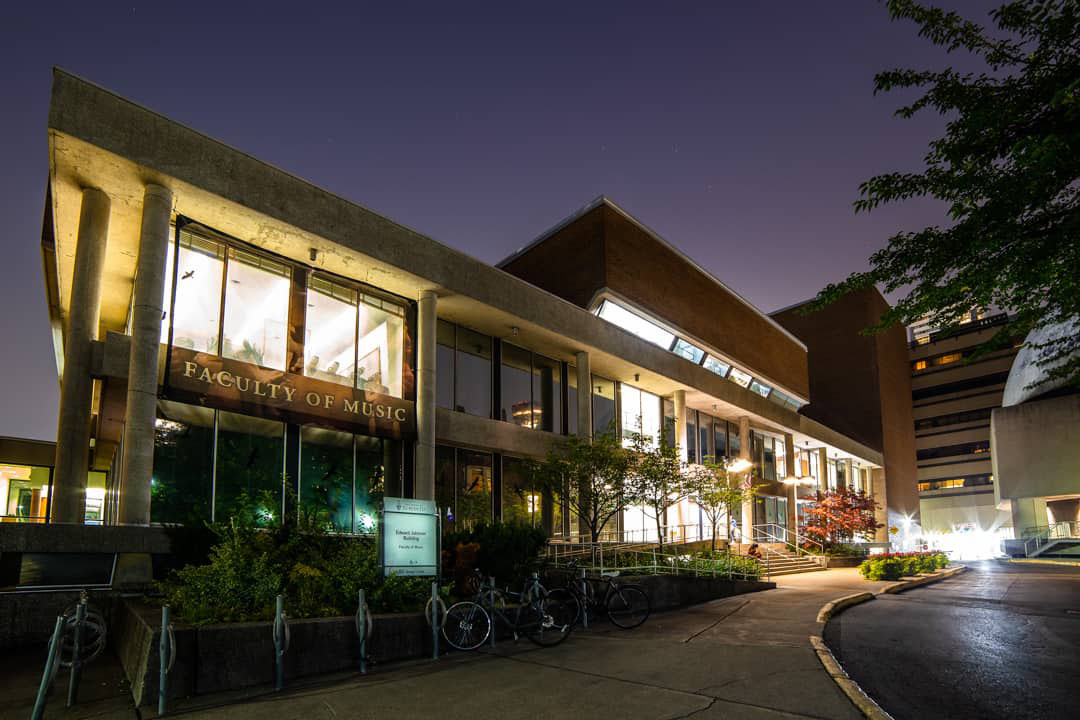Content warning: This article discusses sexual harassment and violence.
Earlier this year, allegations of sexual harassment and misconduct within the U of T Faculty of Music began circulating on social media. Soon after, in late May, the Faculty of Music Undergraduate Association (FMUA) released two open letters describing the systemic issues around sexual assault that pervade the faculty. The first letter acknowledged the history of sexual harassment within the faculty, and the second letter, through four specific proposals, called on U of T to address the toxic culture that enables such harassment.
In a recent display of outrage over the ongoing issue, the Canadian Union of Public Employees (CUPE) Local 3902 assembled clotheslines along Philosopher’s Walk that depicted the testimonies of students. In a way, the messages on the clotheslines aired the faculty’s “dirty laundry” and exposed the toxic culture hidden behind its walls.
The reality is that issues surrounding sexual assault and harassment are not new within the faculty; rather, according to FMUA President Ness Wong, they are part of a decades long phenomenon that has allowed perpetrators to thrive under a lack of consequences for their actions. Wong says that there have been more than 50 accounts of sexual misconduct at the music school — with some dating back to the 1970s.
The truth is that many of these accounts have either been unreported or unresolved due to an ambiguous and convoluted reporting process. The additional fear of retaliation by the perpetrators has further silenced the victims of sexual assault.
So the question now becomes, what has been done to address the systemic issues present throughout the Faculty of Music?
In response to the open letters penned by the FMUA, Don McLean, former dean of the Faculty of Music, wrote on behalf of the administration that they were taking action to address the “distressingly toxic” culture at the faculty. This included making consent training mandatory and creating a role for an equity, diversity and inclusion officer at the faculty. Yet, as long as the perpetrators of these crimes walk free in an environment that favours impunity rather than accountability, the central issue still remains.
According to a study published by Statistics Canada, in postsecondary settings, personal experiences of unwanted sexual behaviour are more common among women than men. As such, to ignore the allegations of sexual violence and misconduct in the Faculty of Music is to perpetuate a culture that fuels misogyny and hatred against women.
It has been four years since the creation of the #MeToo hashtag, which resulted in a worldwide reckoning that confronted the sexual violence that many women have experienced. The allegations of sexual violence at the Faculty of Music are another sordid reminder that the movement is not over. Many women and girls continue to experience sexual harassment — particularly in the field of classical music.
According to an article in The Atlantic, the classical music industry is not only inherently competitive, but also built upon a culture of discipline, sacrifice, and skilled mentorship. As such, someone’s success in the musical field is highly dependent on the relationship they develop with their mentor and other high-profile artists. With a tradition of older mentors guiding young musicians, it becomes evident how such a culture can potentially facilitate sexual misconduct and abuse.
Moving forward, the University of Toronto needs to acknowledge the effect that decades of sexual abuse and misconduct has had on the students and staff within the Faculty of Music. In doing so, the university can begin to make amends to students that have suffered abuse.
In July, the Faculty of Music dean commissioned a “Climate and Culture Review,” which began on September 23. By implementing an external and impartial review — as outlined by the FMUA in the open letter — the Faculty of Music can investigate the issues that contribute to the toxic atmosphere. Furthermore, by establishing strict guidelines and policies concerning interactions between individuals within the Faculty of Music, U of T can also begin to move beyond a culture that promotes sexual misconduct.
By acknowledging the toxic culture and implementing change, U of T can not only express solidarity with the survivors of sexual assault at the Faculty of Music, but also with survivors of sexual assault elsewhere at U of T.
Shernise Mohammed-Ali is a third-year neuroscience, psychology, and English student at Victoria College.
Editor’s Note (September 30): A previous version of this article called for a review of the culture at the Faculty of Music even though such a review was announced over the summer. The Varsity regrets this error.
If you or someone you know has been affected by sexual violence or harassment at U of T:
- Visit safety.utoronto.ca for a list of safety resources.
- Visit svpscentre.utoronto.ca for information, contact details, and hours of operation for the tri-campus Sexual Violence Prevention & Support Centre. Centre staff can be reached by phone at 416-978-2266 or by email at [email protected].
- Call Campus Safety Special Constable Service to make a report at 416-978-2222 (for U of T St. George and U of T Scarborough) or 905-569-4333 (for U of T Mississauga)
- Call the Women’s College Hospital Sexual Assault and Domestic Violence Care Centre at 416-323-6040
- Call the Scarborough Grace Sexual Assault Care Centre at 416-495-2555
- Call the Assaulted Women’s Helpline at 866-863-0511


